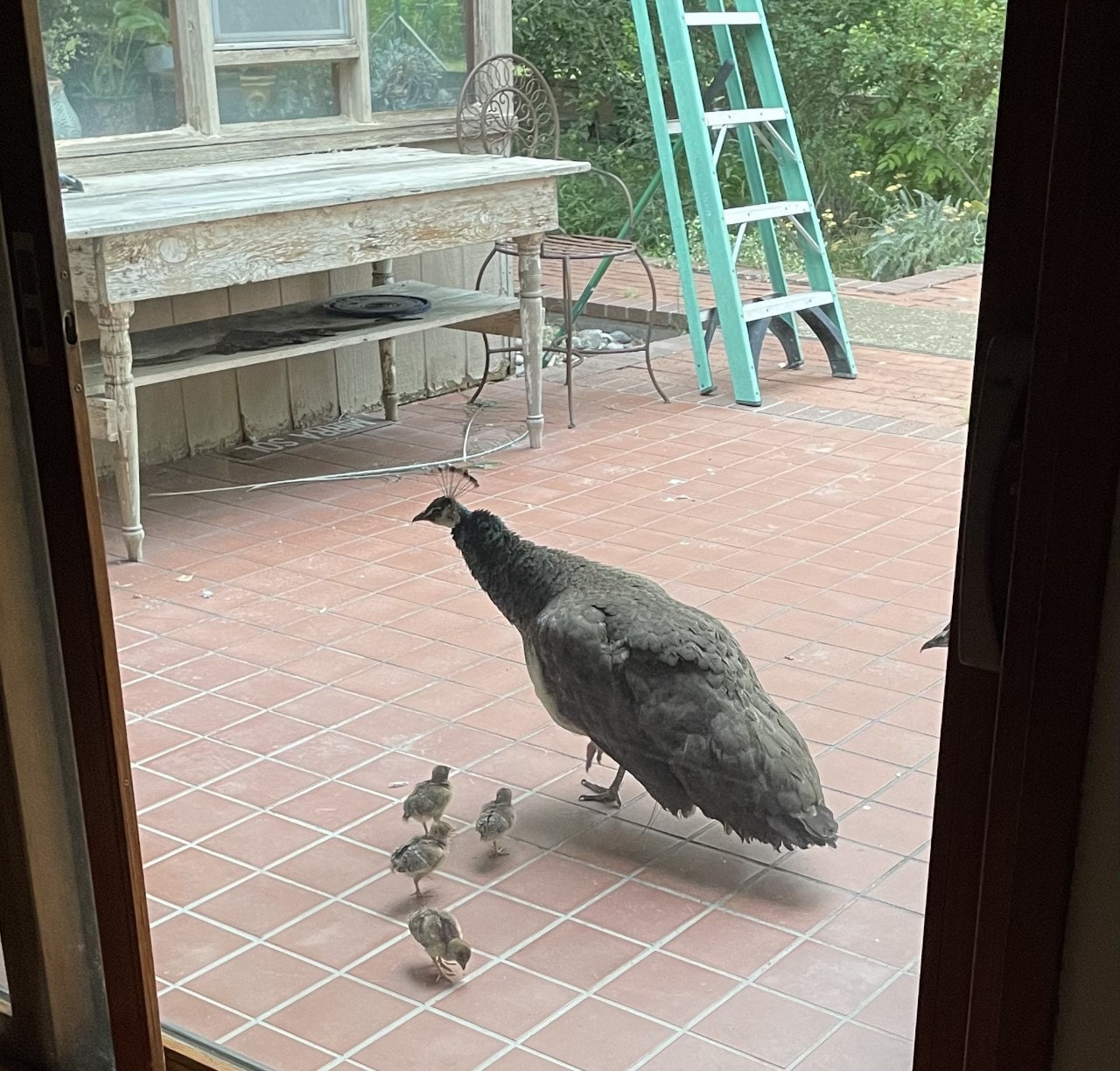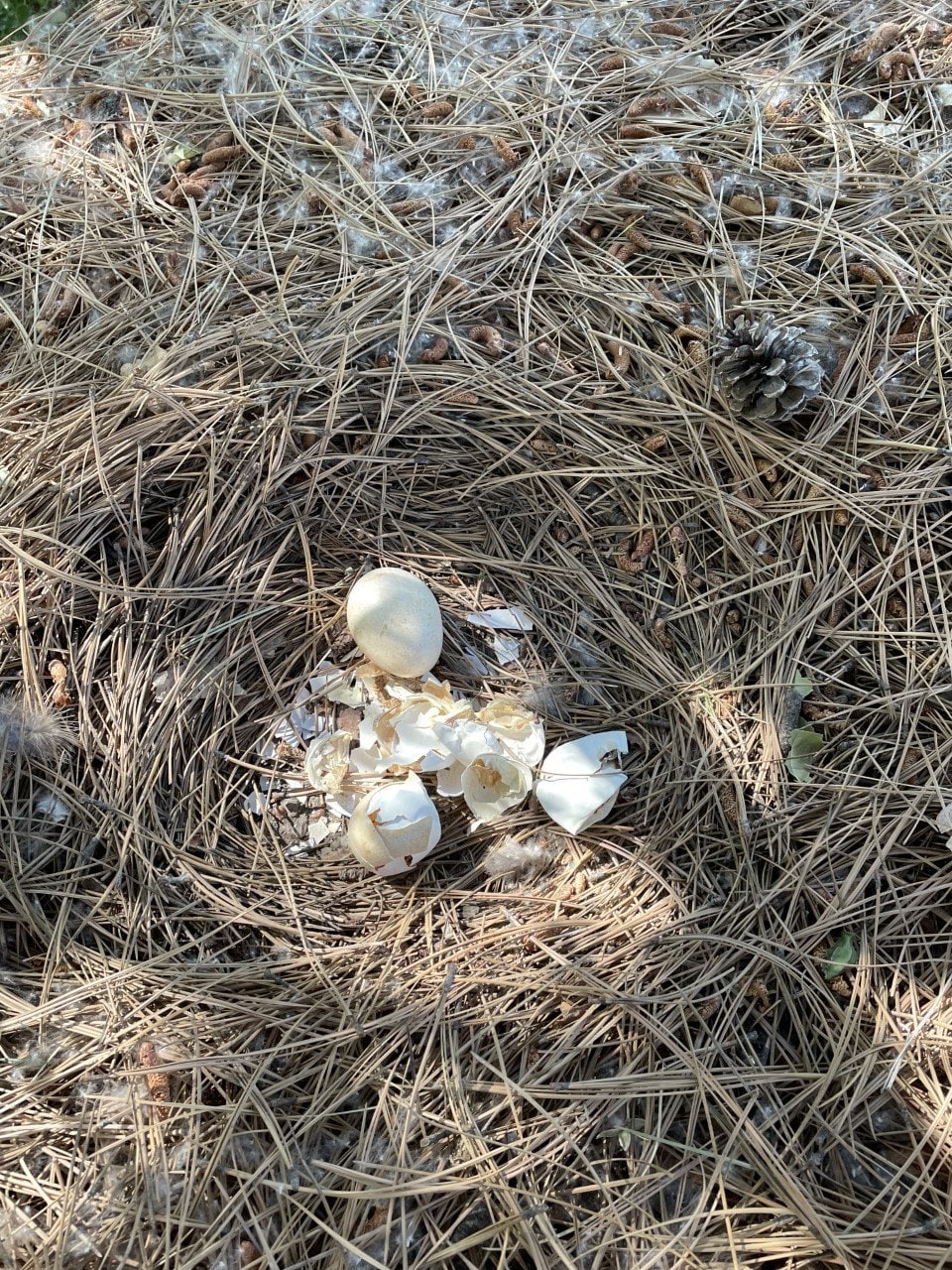I'd like to say we have pet peacocks, but the truth is, peacocks roam around our place and are anything but pets. Peacocks are feral. They won't let you pet them, although they'll sometimes eat ice cream from your hand. They might stick around if you tempt them with mealworms and blueberries, but they also forage for their own food. Peacocks roam a wide range of territory, and we've got lots of that.
We live on an almost ten-acre conservation property, with over six of the acres in Farmland Preservation. We are in the green belt of New Mexico, in the Rio Grande Valley, which has a "bosque" of cottonwood trees (called a Riparian Forest) on either side of the river. Relative to the rest of New Mexico, this is a lush strip of land.
We've been on this property for over 15 years, and the owner before us cultivated an environment that attracts all sorts of wildlife, as conservation property exists not just for farming but also to be a refuge for native animals and to provide sanctuary for the natural flight path of wild birds. There are eagles, hawks, falcons, pheasants, we've even spotted a Great Blue Heron. We regularly see coyotes, rabbits, snakes, even bobcats! And then there are these feral peacocks that have found this place and settled in, as they roam from other neighborhoods.
Peacocks are not native to New Mexico. They are the national bird of India, and they are native to tropical environs, which the high desert of the Southwest is not. Here where we live, temperatures regularly dip below freezing in winter. People all over the country buy peacock babies thinking they are cute and will grow into beautiful birds that can be admired. But peacocks roam a wide range, and inevitably, someone else's birds will end up on your property. Peacocks are either loved or reviled. Just look up "Peacocks as Pets" and you'll see that neighborhoods all over are divided as to whether they are good to have or nasty pests.
We've welcomed the birds, feeding them and talking to them. They roost high in trees. And they like to forage for insects, so this is a great spot for them to live and roam. Yes, they can be messy and loud, but if there is any place that is suited for a big roaming bird, our conservation property is that place.
The problem is, we can't stop them from leaving. And with all the wildlife that visits our land, we can't protect the peacocks. Fortunately, an adult peacock is big, and the only predator is really the bobcat or the coyote. And most peacocks can flee when a big animal tries to attack. It's only when they have babies that things get dicey.
In 2020, there were three peahens on the property, roaming between our place and our neighbors' places. Between them, the three hens hatched 18 chicks, or six each. Out of those 18, only one survived. Not such great odds.
Fast forward to last week, and currently there is only one peahen on the property. Her name is Petunia. Her mate is rePete. (He was named after Pete, an older male that roosted in a cottonwood tree for seven years, until rePete chased him away a few months ago.) Petunia just last week hatched four babies. And so begins the journey of watching them grow, and rooting for them to survive the harsh reality for baby chicks.
I've wrung my hands trying to figure out how to get more baby peacocks to survive. The only way to do that is to separate them from Mama and raise them in captivity. But doing that puts them at huge risk for the rest of their lifetime. They don't learn from Mama and Dad how to hunt for food and water, how to roost high in the trees where they're safest from predators on the ground, nor how to live as natural a life as they were meant to live. Taking babies from parents is also a horrible thing to do to the parents. Any time Mama or Dad lose a baby, they cry and call for their baby.
So we are leaving Petunia and rePete to do what they do best. We will try to shoo away hawks and keep the babies within a confined area for as long as we can, with their parents, and do our best to help them grow and thrive.
I hope you'll follow us on this journey. It isn't always pretty. But we learn so much from peacocks. And we love their beauty and grace.


